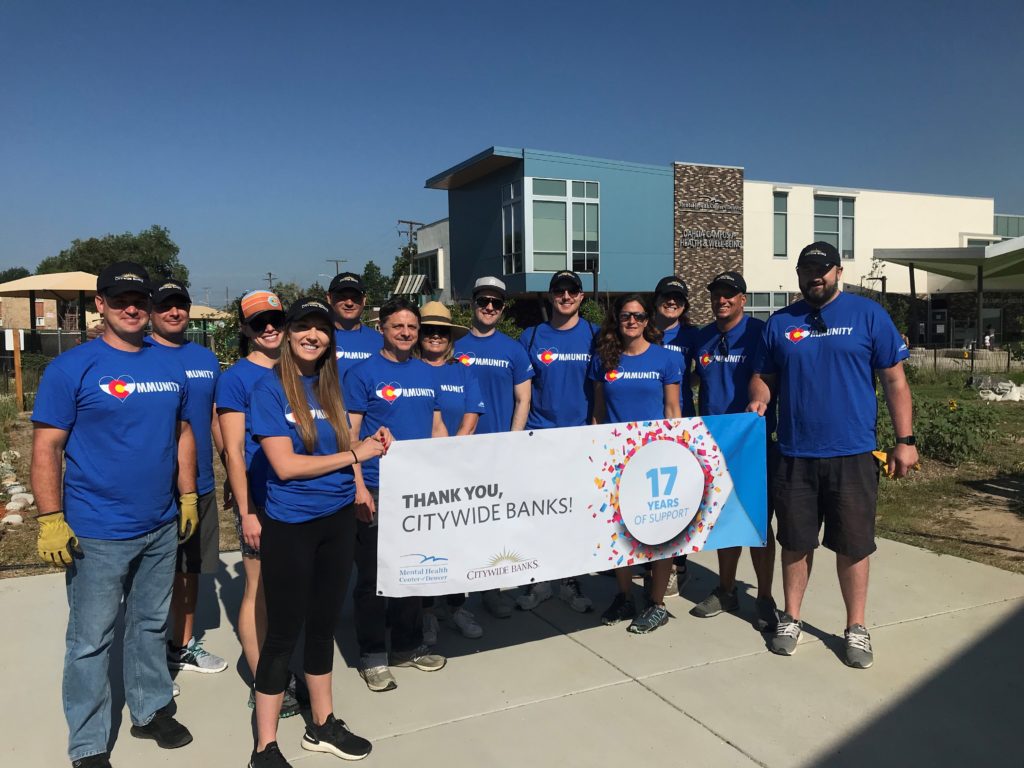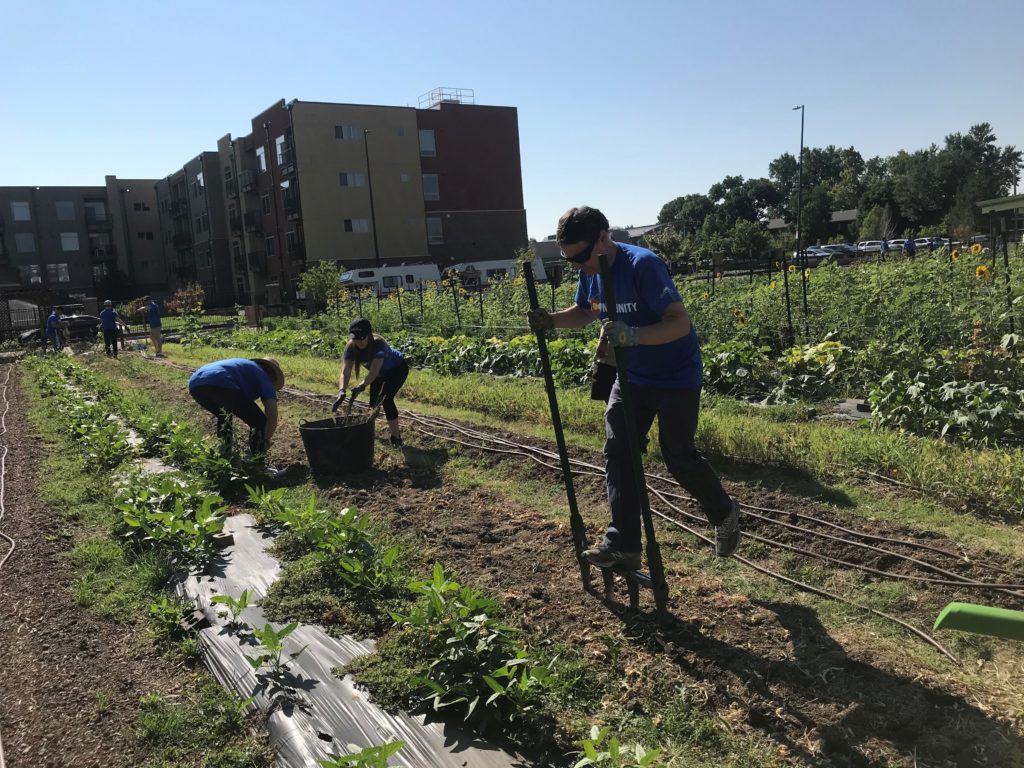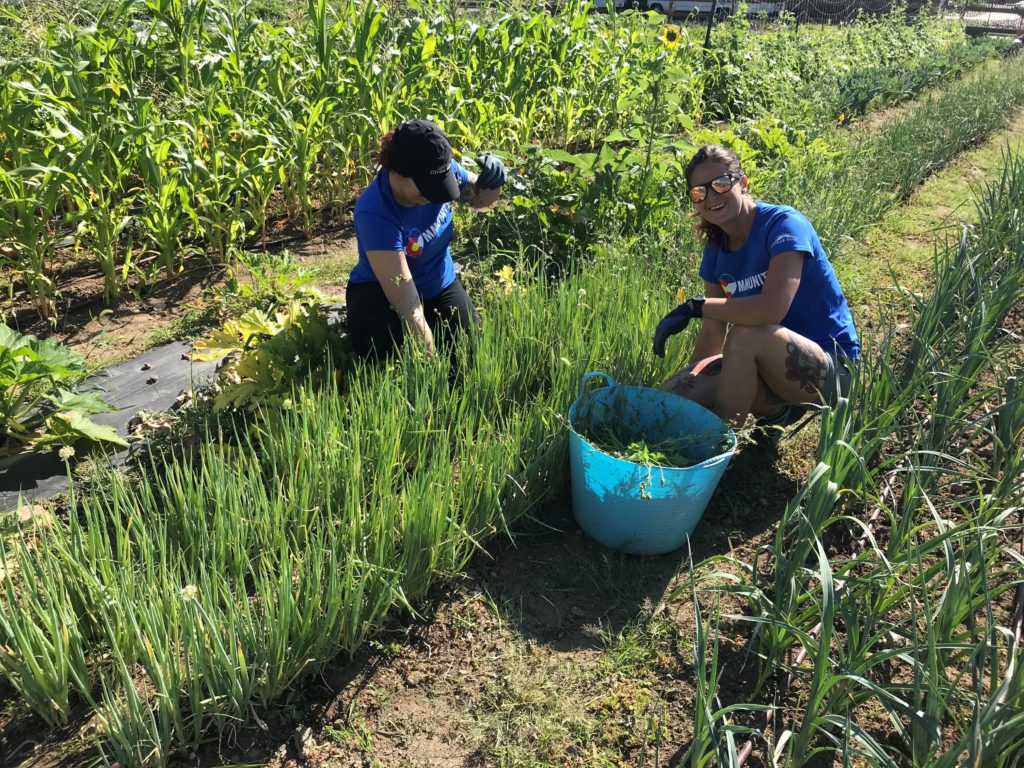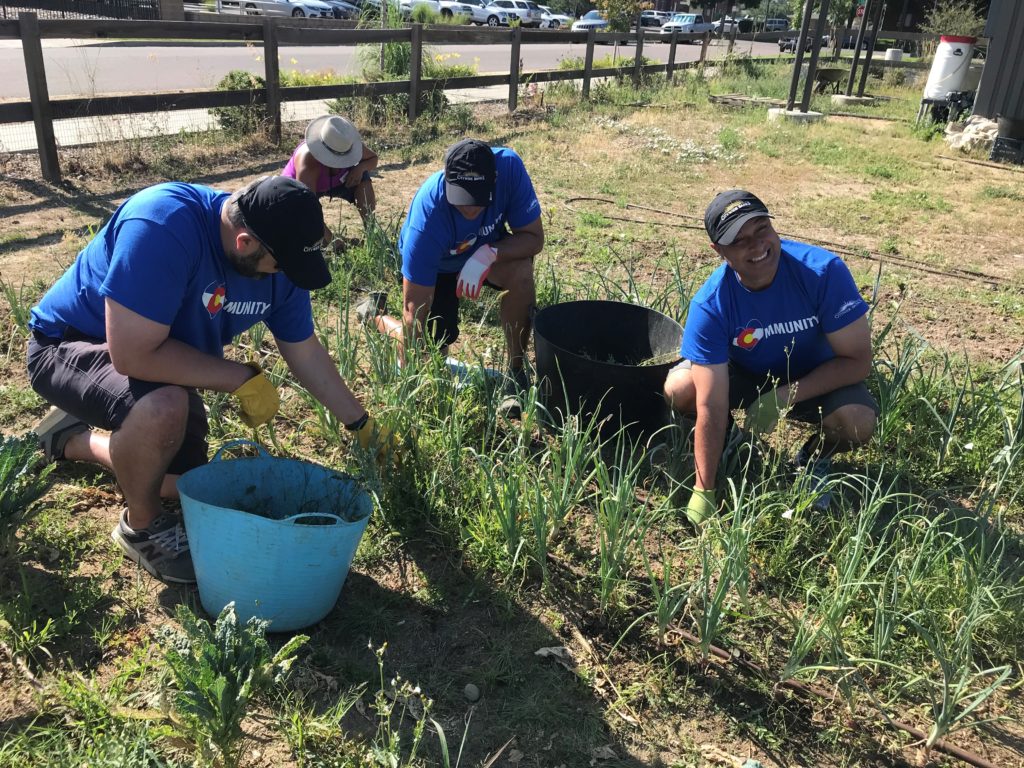Report to the Community
Fall 2021
Report to the Community
Fall 2021

Powering the Pursuit of Well-Being
Substance Use Can Make Coping With Stress More Difficult

Drinking alcohol, or using other substances, can sometimes be thought of as a way to relieve stress, cope with trauma or deal with grief. But, is it actually an effective way to find the relief we’re looking for?
Substance Use Can Cause A Vicious Cycle
“If I’m drinking or using any substance, I might get a temporary break from my worries, so I might feel better in the moment,” said Ashlie Lund-Richardson, assistant program manager at the WellPower.
But, when you come off that substance, you have a tremendous amount of rebound anxiety.
“So, the anxiety you experienced before actually becomes extremely heightened when you come off the substance, which can perpetuate the cycle of substance use,” said Jade Werner, clinical case manager and licensed addictions counselor at the WellPower.
Substance use does not allow us to process what is happening in our lives. It prevents us from effectively working through the stress, grief or trauma that is driving us to find relief.
In addition, it can cause guilt and shame – powerful emotions that can add to the cycle of wanting to find an escape.
How to Know When Substance Use Becomes Unhealthy
Simply using a substance does not mean you have a disorder.
“Many people use substances recreationally, and maybe it’s not an issue for them,” Jade said. “It becomes an issue when it impairs how we function in our life.”
Questions to ask yourself about substance use:
- Is this having a negative impact on my:
- Physical Health
- Do I feel hungover or sick?
- Has a medical provider suggested I stop, and I continue to use substances anyway?
- Work or School
- Am I running late?
- Am I unable to focus or do my work?
- Relationships
- Are my relationships with my children, partner, friends, parents, etc. affected?
- Legal Situation
- Have I gotten a DUI?
- Have other legal issues come up?
- Physical Health
- Is it becoming the primary activity I engage in?
- Am I spending time trying to find a substance?
- Am I craving it?
“If there’s a negative impact somewhere in our lives, then that’s our cue that our substance use is becoming problematic,” Ashlie said.
Why It’s Hard to Stop
Everyone has a different story.
“You can have a biological addition to alcohol where you experience physical withdrawal symptoms when you stop,” Ashlie said. “And other people might be emotionally attached.”
“Substances change the actual structure of our brain,” Jade said.
They artificially put dopamine, a neurotransmitter, in our brains, which makes us feel satisfied. If we use substances long-term as a coping mechanism, and then stop using them, there is a lower level of dopamine in our brains. It results in us wanting instant gratification instead of working through something.
“It’s not that people are weak-minded or don’t have the willpower to stop,” Jade said. “When substance use is a disorder, it’s something that has to be managed, similar to other disorders like diabetes.”
And not only is it a physical and emotional addiction – it’s a cultural one too, especially when it comes to alcohol.
“It’s very normal to get a bottle of wine after work or grab some drinks at the grocery store. We’ve normalized it so much in our culture that we start to forget to look at it when it’s problematic for us,” Ashlie said. “To stop, you have to face whatever you’ve been avoiding.”
Resources to Help
When substance use becomes a disorder, it can feel isolating. No one has to go through it alone.
WellPower
We provide support to adults and adolescents experiencing difficulties with substance use. We have staff certified in addictions counseling that offer individual and group therapy.
Our variety of groups include people who are:
- Unsure that they want to be in sobriety
- Working on being sober
- Maintaining their sobriety
- Using substances related to trauma
The WellPower also has a medication-assisted therapy program and residential programs that provide wraparound support for individuals experiencing a co-occurring substance use and a mental health disorder.
“There is a high correlation of substance use disorders and mental health symptoms, such as depression or anxiety, occurring together,” Jade said. “If there is something going on in your life and it makes your functioning difficult, give us a call. We’re not concerned about labels. We treat people and symptoms.”
To access services, call 303.504.7900 or email accesscenter@wellpower.org.
Colorado Crisis Services
If you are in crisis or need help dealing with one, call this 1-844-493-TALK (8255) to speak to a trained professional, or text TALK to 38255. In addition, you can visit a 24/7 a walk-in center across the Denver metro area.
Substance Abuse and Mental Health Services Administration (SAMHSA)
Find resources, including a substance use treatment locator to find support near you.
Denver CARES
Denver CARES provides safe withdrawal management from alcohol and drugs.
It May be Time to Update Your Well-Being Plan

Throughout the COVID-19 pandemic, we’ve learned a lot about the effects COVID-19 has on physical health – what about mental health? We recently looked at how the pandemic affects mental health and what we can do about it.
What have we learned over the past year?
Enduring over a year of the COVID-19 pandemic has taught us a lot about gaps in treatment, accessibility, and the digital divide. At the WellPower, we’ve worked hard to address those gaps by bridging our services to meet people where they are.
“The biggest trend I’ve noticed during the pandemic is increased accessibility,” says Clinical Case Manager Tonoa Manuel. Because of how rapidly we adapted to using telehealth services, I can meet people where they are and provide services to them, which is HUGE. By offering services in different ways – both digital and in-person — I believe that this allows for us to better meet the needs of our communities.”
We know now that when mental health services are available both in person and through telehealth, people have better access and are more engaged. They miss fewer appointments and are more motivated to achieve their goals.
We also know that the pandemic has affected people mentally in negative ways. Many people feel compassion fatigue, vicarious trauma, social isolation, and economic stress. When we see these trends towards poor well-being, creating a well-being plan or adapting the one you have can help.
Adapt your well-being plan to where you are now
A well-being plan is all the things we do to keep our well-being good. Things like exercising, eating nutritious food, getting enough sleep, socializing with loved ones and seeing a therapist all contribute to our overall health and create our well-being plan when they are put together.
The pandemic affected how we approach our individual well-being plans. Not only did the logistics of how we exercised, cooked, and spent time with people change, but the consistent trauma of living through a pandemic caused a lot of added stress. For many people, attending to their well-being felt like trying to fill a broken cup. No matter how much we try to pour into a broken cup, the liquid leaks out anyway, and faster than if the cup were whole.
“When we think about changing our well-being plan, we have to remind ourselves, ‘What used to work for me isn’t working anymore. The things I did in the past worked then, but they don’t now. So what can I do to modify my well-being plan?’ This gives me permission to change and do something different,” says Director of Clinical Services Steve Fisher.
Take some time to think about what your needs are now and how you can update your well-being plan to fit them. Your plan is personalized to you – what works for someone else may not be the right fit for you. As you adapt your plan to fit what you need now, remember to be kind to yourself. If you need support, we encourage you to check out You@YourBest for tools and tips to promote your well-being.
Ending Anti-Black Racism
The WellPower is committed to ending the discrimination and anti-Black racism that runs throughout our society. Over the past year, we formed organizational workgroups to respond to the anti-Black racism crisis and are committed to leading further change.
Our Commitments
We are currently working toward the following priorities:
- Strengthening our recruitment and retention efforts of Black clinicians.
- Enhancing our vendor relationships with Black- and minority-owned businesses.
- Hosting and engaging in community forums with the Black community.
- Supporting Black-owned organizations advancing social justice.
- Expanding and deepening partnerships with organizations focused on the health of the Black community.
- Advocating for legislation and policies that advance equity.
Current Efforts & Accomplishments in Ending Anti-Black Racism
- Assessing our job interview and selection processes to reduce bias.
- Working with Metro State University (the most diverse university in the Denver area) to offer training and recruitment opportunities for students.
- Partnering with professional organizations, such as the National Association of Black Social Workers, to recruit new hires.
- Supporting other organizations that work to end anti-Black racism through financial sponsorships.
- Training staff on advocacy work and topics related to diversity, equity and inclusiveness.
- Encouraging voter registration among staff and people we serve.
- Engaging our newly formed public policy team.
- Expanding the way we collect demographic data in our electronic health record, including adding race categories from which individuals can self-identify.
- Improving data collection in our electronic health record to identify any discrepancies in our care.
- Training staff on 911 dispatch best practices to guide appropriate use of police, and ensuring police are trauma-informed when they do need to be called.
- Earning a top employer designation from DiversityJobs.com for the second year, as a result of our consistency around diverse recruitment efforts.
- Listening to and engaging with the Black community to inform our initiatives, including understanding where we are currently present and where we need to show up more strongly.
Next Priorities
We know our work is far from over – it’s an ongoing effort. So, our next priorities will increase our capacity to continue this work in our community.
- Conduct surveys on health in the Black community, and compensate participants for their time.
- Receive consultation from community leaders to train our staff on anti-Black racism.
- Develop a new risk assessment scale that includes anti-Black racism as an indicator. A risk assessment like this does not currently exist.
- Expand paid internships.
- Strengthen nationwide recruitment at schools outside of the Denver-Metro area.
- Host focus groups to get feedback on our new tools, such as our telehealth app, and compensate participants for their time.
- Integrate decision-making support into our electronic health record, such as pop-up messages that provide information and treatment recommendations based on average demographic trends.
- Create a process where a person we serve can request specific attributes in a therapist they would like to see (e.g., a Black therapist, female therapist, therapist who understands a specific religion, etc.).
SAVE THE DATE – Colorado Gives Day is December 7
WellPower is participating in Colorado Gives Day for the 11th year in a row.
This annual statewide movement encourages philanthropy through online giving. Featuring a $1 Million incentive fund presented by Community First Foundation and FirstBank, every participating non-profit organization receives a portion of this fund, boosting the value of every dollar donated during the campaign.
Donations for Colorado Gives Day can be scheduled in advance starting November 1 and all gifts received through December 7 on our page at ColoradoGives.org will be matched by the incentive fund.
Join us in powering the pursuit of well-being by supporting WellPower.

Donor Spotlight on Citywide Banks
- Interactive community activities
- Workplace well-being resources
- WellPower information
- Well-being and mental health education
For more information about the Road to Well-Being van, contact community@wellpower.org.
If you’re interested in learning more about sponsorship and/or volunteer opportunities contact Amanda DeGruccio at amanda.degruccio@wellpower.org.





